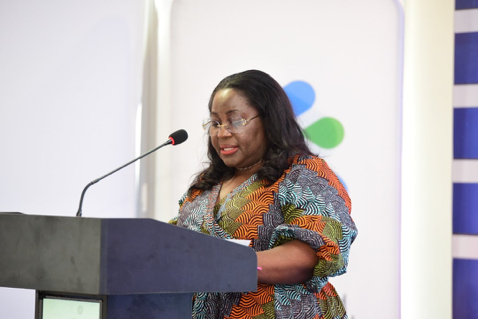Standard Chartered Bank, Ghana`s premier commercial bank, officially launched its Women in Tech Incubator programme Cohort Two at its head office in Accra last week.
The event’s purpose was to empower women in technology – the next generation to learn and grow through programmes focused on education, entrepreneurship and employability.
Standard Chartered Bank has contributed to the social economic development in the country. This includes raising the standard they operate at while playing their part in reducing poverty and inequalities through various initiatives from the early 2000s. Their community programmes focus on education and health, including their global flagship ‘Seeing is Believing’ programme that tackled avoidable blindness and visual impairment. The ‘Seeing is Believing’ intervention programme reached over five million Ghanaians.
After the ‘Seeing is Believing’ intervention programme and others – such as next for life, HIV awareness and prevention, the bank still has to roll out a new programme called ‘Future Leader Makers’ which aims at supporting the disadvantaged young from low-income households, particularly girls and people with visual impairments; and it also focuses on local needs.
The keynote speaker, Mrs. Yvett Atepe-Managing Director of Dimension Data Limited, said empowering female-founded businesses will be crucial if they are to make any meaningful contribution to the country`s agenda.
“As ladies, we have a big role to play in our country`s digitalisation system; with sufficient access to online learning and programmes such as the Standard Chartered incubator, we can ensure that ladies are highly equipped for a better digitalisation future. Women’s inclusion in companies may be crucial to success; hence, higher gender inclusivity in the tech industry not only creates value for consumers that identify with us as women, but may also help to boost the economy at large,” Mrs. Atepe said.
Special Guest of Honour, Mrs. Ama Pomaa Boateng – Deputy Minister of Communication and Digitalisation, congratulated the bank for partnering the Ghana Climate Innovation Centre to roll out the initiative.
She added that government has also put in place policies to encourage entrepreneurs, especially for women-owned business set-ups.
“Fully digitalising our economy requires a lot of innovation, and that present a lot of opportunities for private sector actors to support the process. Opportunities exist to invest in building connectivity infrastructure, use data, promote digital firms and support digitalisation of the wider economy.”
She added that the Ministry of Communication and Digitalisation wants to use technology as the engine to drive the country’s development agenda.










